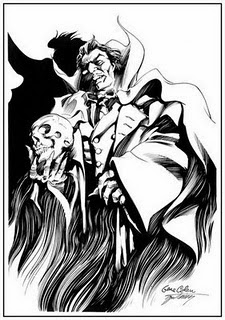The art-horror; horror writing Horror stories The nature of Horror, by Noel Carroll
Abraham "Bram" Stoker (November 8, 1847 – April 20, 1912) was an Irish novelist and short story writer, best known today for his 1897 Gothic novel Dracula. During his lifetime, he was better known as personal assistant of actor Henry Irving and business manager of the Lyceum Theatre in London, which Irving owned.
Vampire Academy (Director: Mark Waters)
Starring
Zoey Deutch
Lucy Fry
Danila Kozlovsky
Rose Hathaway is a Dhampir, half human-half vampire, a guardian of the Moroi, peaceful, mortal vampires living discreetly within our world. Her calling is to protect the Moroi from bloodthirsty, immortal Vampires, the Strigoi.
Clark Ashton Smith: The Poet Talks with the Biographers
O ghouls of fetid and funereal midnights,
Say, what do you uncover in your sad labors?
—We have disinterred the Empusa of thy fears
And the frightful Gorgon with her livid eyeballs
In our mournful labors.
O diggers all so diligent, O sapient ghouls,
What have you found in your prodigious toils?
—We have exhumed with all their antique evils
Thy loves, with features gutted by the worms,
In our enormous toils.
Grimed openers of pyramid and ossuary,
What revealed ye yesterday at crimson evening?
—We have dug up the black and ashen soil
To anatomize the shroudless nymph
Who was laid to sleep at evening.
Ghouls, what would ye do, tonight, for your pleasure,
Within these low, lugubrious and gaping tombs?
—We come to disenswathe the living dead—
The never-gelded fauns of thine old vices—
Within these gaping tombs.
Jean Marigny: Secrecy as Strategy in Dracula
Journal of Dracula Studies 2 (2000)
[Jean Marigny, a
TSD member in France, is affiliated with Université Stendhal in Grenoble. This
article is based on a paper he gave at the Second World Dracula Congress in
Romania in May 2000.]
The words “secret”
and “secrecy” come from the Latin form secretum, itself derived from the
verb secernere which means “to separate”, “to distinguish”, “to leave
out” and even “to eliminate.” Secret and secrecy play an important part in Dracula
and it is obvious that many facts in the plot of the novel are never clearly
elucidated and are often willingly left out. The reader feels as if an
important part of the truth was concealed from him and whenever an explanation
is given, it seems to come too late. Like detective novel writers, who let
their readers devise their own hypotheses for the sake of suspense, and wait
until the end to disclose the truth, Bram Stoker keeps useful information for himself.
It is not known until the middle of the story, for instance, that we are openly
told that Count Dracula is a vampire. Stoker’s narrative strategy is based on
secrecy, not only in the way the story is told, but in the plot itself, since
the protagonists often keep secrets from each other.
For
the modern reader who knows even before reading the novel what Dracula is, and
who knows the plot, either by hearsay or from the movies, it is obvious that
there is no real secret. We must keep in mind, however, that for Stoker’s
contemporaries it was quite different. They did not know what the novel was
about and they enjoyed its atmosphere of mystery and suspense.
It
appears that the narrative framework of Dracula is meant to confuse and
puzzle the reader. In keeping with the tradition of Gothic masterpieces like The
Monk by Lewis, Stoker makes use of many different narrative voices. Dracula
is in fact a patchwork of texts including diaries, journals, letters,
telegrams, reports, etc. Very often the information contained in these
documents seems to have no link whatsoever with the main plot. Such facts as
the tragic events on board the Demeter, the escape of the wolf Bersicker
from London Zoo and Renfield’s medical case seem to have little to do with
Harker’s experience in Transylvania. The reader, who has no explanation, is
non-plussed. Moreover, unlike most earlier Gothic novels, in Dracula
there is no omniscient narrator to help us understand what is happening. The
reader has to find the truth by himself. Thus we can say that Stoker’s novel is
quite modern (and perhaps even postmodern). Undoubtedly many contemporary
writers of horror fiction, like Stephen King and Peter Straub, are much
indebted to him.
Subscribe to:
Posts (Atom)





